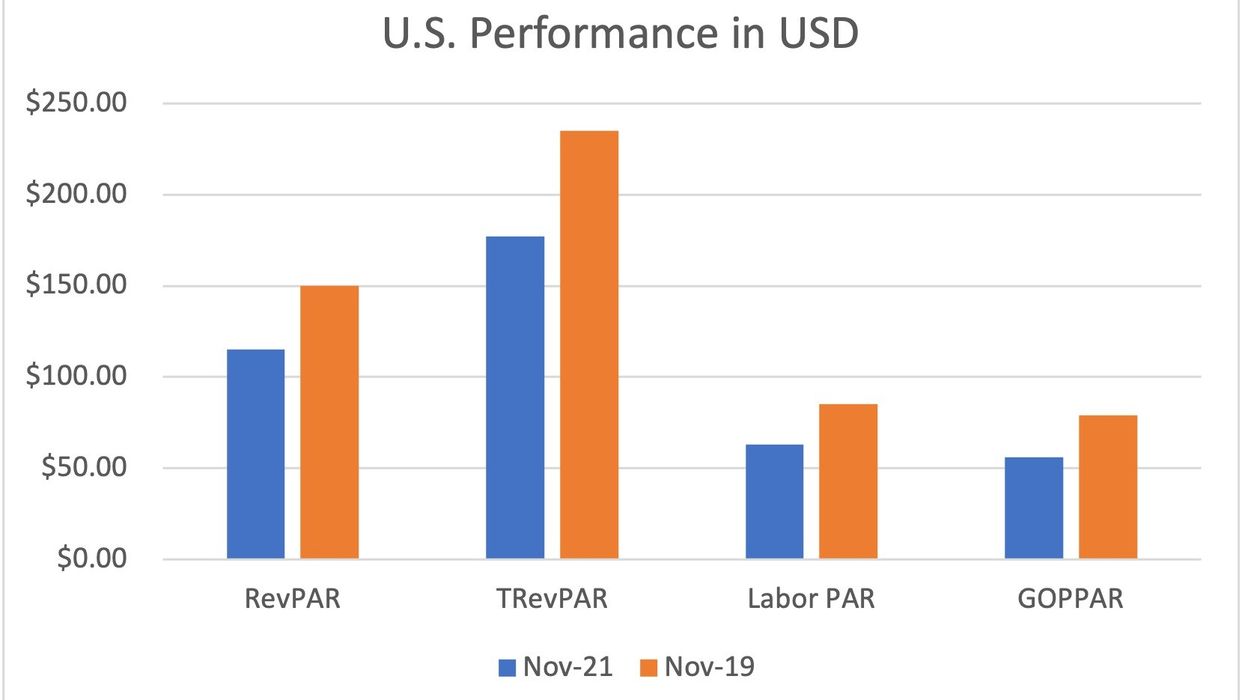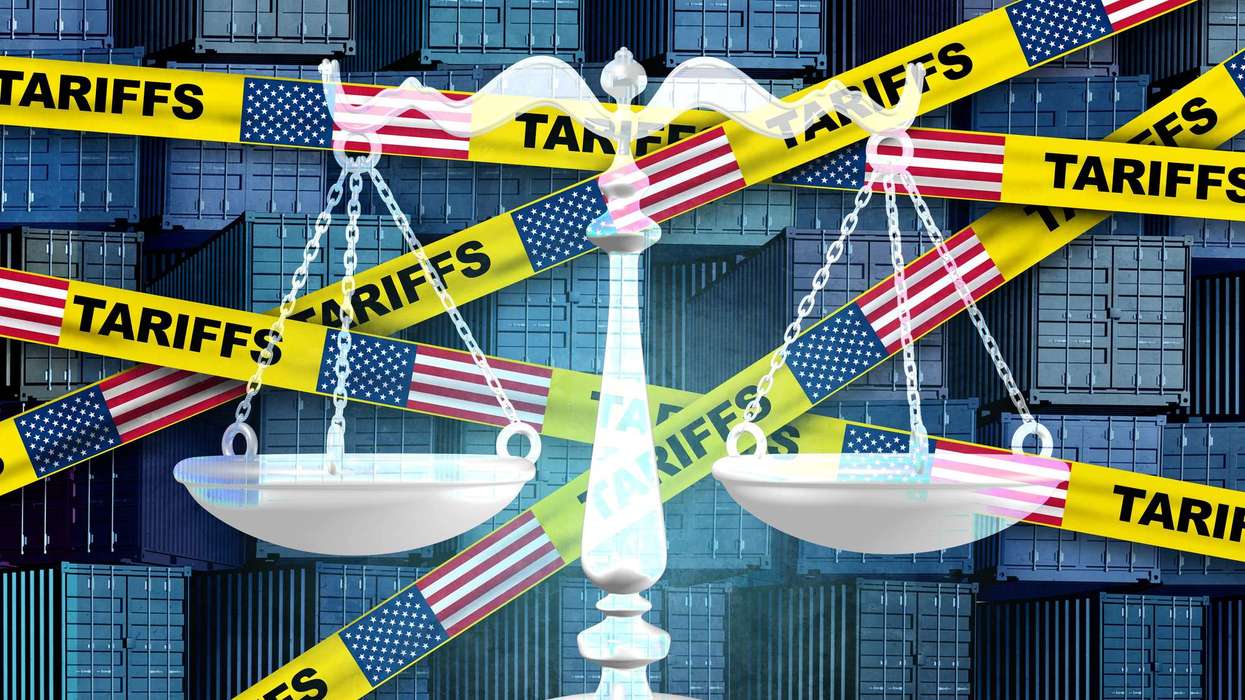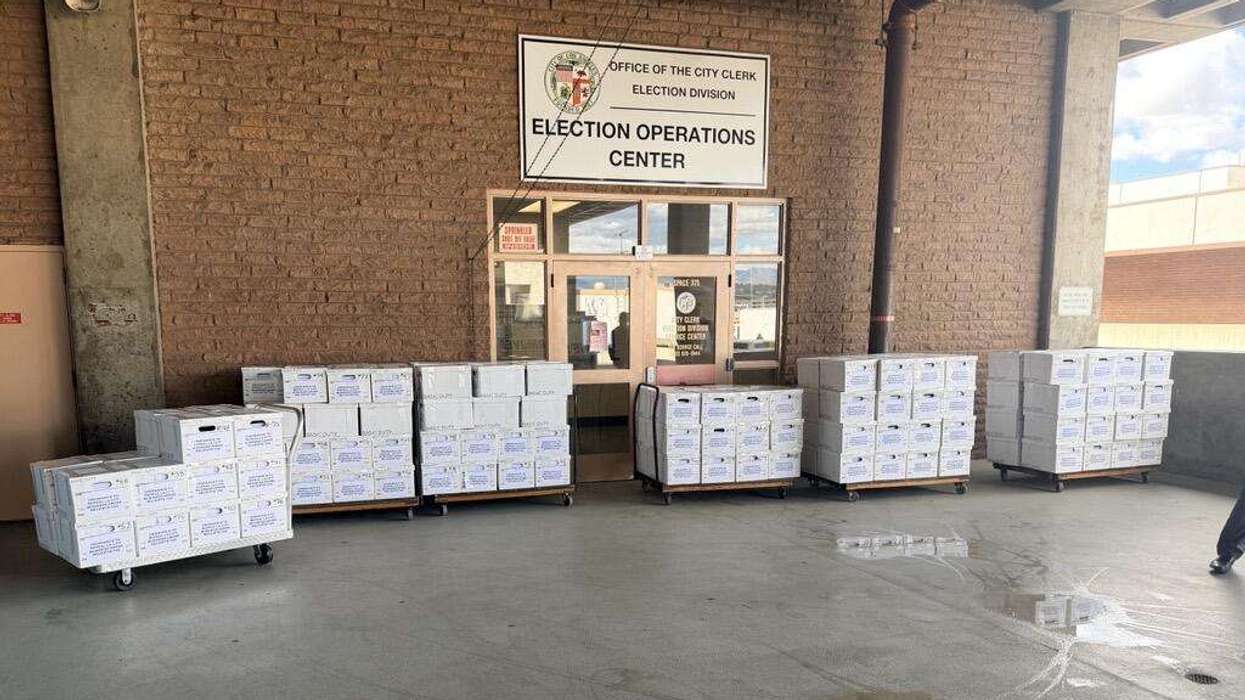THE OMICRON VARIANT has not good for the hospitality industry, but it hasn’t been as bad as expected, which is a good sign for the future, according to HotStats. GOPPAR for November was up from the same time last year, but still down from 2019.
GOPPAR for November was $55.68, down 29.4 percent from November 2019. It’s also down from $68.97 In October, but according to HotStats that is not unusual for this time of year.
“A typical spike in profit in October, normally gives way to a drop off in November,” HotStats said. “ADR in the month was $7 higher than at the same time in 2019 after being well down in 2020. This helped drive both RevPAR and TRevPAR, which were both up triple digits over 2020, though still down considerably versus 2019.”
The appearance and rapid spread of Omicron, which originated in South Africa and by December was the dominant strain in the U.S., was a “noisy” intrusion, HotStats said, coming as it did while the country was still dealing with a spike from the Delta variant. However, it could turn out to “be more insipid than insidious.”
“Despite our best efforts, there is an assumption that COVID will become an endemic disease, meaning it’s here in perpetuity, like the flu. That means one thing: better get used to it. If it’s Omicron one day, it could be Upsilon next,” HotStats said. “For the hotel industry, that means rolling with the punches—hard or soft. The dark days of 2020 are (touch wood) never coming back and as 2021 comes to a close, the year ahead appears brighter, if not bumpy.”
Last month, HotStats said it was concerned that the spread of Omicron, and subsequent travel restrictions put in place to slow that spread, could affect future hotel bookings, meetings and other hotel-related activities.
“The problem for the travel industry is that the fear factor, whether science proves it to be justified or not, has returned almost overnight,” Gary Bowerman, director of travel and tourism research firm Check-in Asia, told HotStats.






